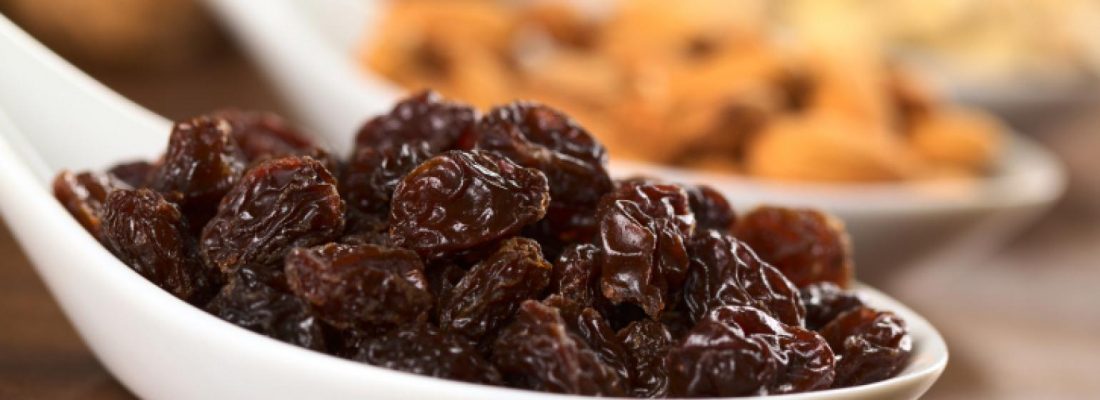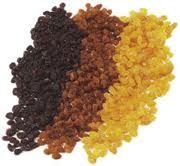
Exporting Raisins to China
Unlocking Opportunities in a Growing Market
Introduction to China’s Raisin Market
China is one of the largest consumers of dried fruits globally, and raisins are no exception. As the country continues to experience economic growth and rising disposable incomes, the demand for nutritious snacks like raisins has surged. For exporters, this presents an excellent opportunity to tap into one of the most lucrative markets in Asia. This article outlines the essentials of exporting raisins to China, including market trends, regulatory requirements, and tips for successful entry.
The Growing Demand for Raisins in China
1. Health Trends Driving Consumption
As Chinese consumers become more health-conscious, the popularity of nutritious snacks has soared. Raisins, known for their high fiber content, antioxidants, and natural sugars, fit perfectly into this trend. They are often consumed as standalone snacks, added to cereals, or incorporated into various dishes.
- Natural Sweetener: Raisins are increasingly being used as a natural sweetener in cooking and baking, appealing to those looking for healthier alternatives to refined sugars.
- Snack Culture: With a growing snacking culture, raisins are becoming a go-to option for busy consumers seeking convenient, healthy snacks.
2. Versatile Culinary Uses
Raisins are not only popular as a snack but are also a common ingredient in many traditional Chinese dishes and desserts. Their sweet flavor enhances various recipes, including:
- Congee: A traditional rice porridge often sweetened with raisins.
- Baked Goods: Raisins are commonly found in breads, buns, and pastries.
- Savory Dishes: They are also added to stir-fries and braised dishes for added sweetness and texture.
Key Considerations for Exporting Raisins to China
1. Understanding Import Regulations
Before exporting raisins to China, it’s crucial to familiarize yourself with the country’s import regulations. The General Administration of Customs of the People’s Republic of China (GACC) oversees the import of food products, including dried fruits. Here are some essential requirements:
- Quality Standards: Raisins must meet Chinese food safety standards, which include strict regulations on pesticide residues and contaminants. Ensuring compliance with these standards is vital for successful entry into the market.
- Documentation: Exporters must provide necessary documents, including a phytosanitary certificate, to confirm that the raisins are free from pests and diseases.
2. Packaging and Labeling Requirements
Packaging plays a critical role in attracting Chinese consumers. High-quality, visually appealing packaging can significantly enhance marketability. Consider these tips:
- Durable Packaging: Use moisture-proof, durable packaging to preserve the quality and freshness of raisins during transport.
- Labeling Compliance: Labels should include product information in both English and Chinese, specifying ingredients, nutritional information, and the country of origin. Compliance with labeling regulations is crucial for customs clearance.
Logistics and Distribution Strategies
1. Shipping and Transport
Choosing the right shipping method is crucial for maintaining product quality. Most exporters opt for sea freight for bulk shipments due to its cost-effectiveness. However, for smaller quantities or urgent shipments, air freight may be more suitable.
- Cold Chain Logistics: Implementing cold chain logistics can help maintain the freshness of raisins, especially during the warmer months.
https://raisinexporter.com/2024/09/15/do-raisins-have-protein/
2. Finding Distribution Channels
To successfully penetrate the Chinese market, identifying effective distribution channels is essential. Consider the following options:
- Local Distributors: Partnering with established local distributors can facilitate market entry and help navigate regulatory hurdles.
- E-commerce Platforms: Leveraging e-commerce platforms like Alibaba and JD.com can broaden your reach, tapping into the growing online shopping trend in China.
Unlocking Opportunities in a Growing Market
Introduction to China’s Raisin Market
China is one of the largest consumers of dried fruits globally, and raisins are no exception. As the country continues to experience economic growth and rising disposable incomes, the demand for nutritious snacks like raisins has surged. For exporters, this presents an excellent opportunity to tap into one of the most lucrative markets in Asia. This article outlines the essentials of exporting raisins to China, including market trends, regulatory requirements, and tips for successful entry.
The Growing Demand for Raisins in China
1. Health Trends Driving Consumption
As Chinese consumers become more health-conscious, the popularity of nutritious snacks has soared. Raisins, known for their high fiber content, antioxidants, and natural sugars, fit perfectly into this trend. They are often consumed as standalone snacks, added to cereals, or incorporated into various dishes.
- Natural Sweetener: Raisins are increasingly being used as a natural sweetener in cooking and baking, appealing to those looking for healthier alternatives to refined sugars.
- Snack Culture: With a growing snacking culture, raisins are becoming a go-to option for busy consumers seeking convenient, healthy snacks.
2. Versatile Culinary Uses
Raisins are not only popular as a snack but are also a common ingredient in many traditional Chinese dishes and desserts. Their sweet flavor enhances various recipes, including:
- Congee: A traditional rice porridge often sweetened with raisins.
- Baked Goods: Raisins are commonly found in breads, buns, and pastries.
- Savory Dishes: They are also added to stir-fries and braised dishes for added sweetness and texture.
Key Considerations for Exporting Raisins to China
1. Understanding Import Regulations
Before exporting raisins to China, it’s crucial to familiarize yourself with the country’s import regulations. The General Administration of Customs of the People’s Republic of China (GACC) oversees the import of food products, including dried fruits. Here are some essential requirements:
- Quality Standards: Raisins must meet Chinese food safety standards, which include strict regulations on pesticide residues and contaminants. Ensuring compliance with these standards is vital for successful entry into the market.
- Documentation: Exporters must provide necessary documents, including a phytosanitary certificate, to confirm that the raisins are free from pests and diseases.
2. Packaging and Labeling Requirements
Packaging plays a critical role in attracting Chinese consumers. High-quality, visually appealing packaging can significantly enhance marketability. Consider these tips:
- Durable Packaging: Use moisture-proof, durable packaging to preserve the quality and freshness of raisins during transport.
- Labeling Compliance: Labels should include product information in both English and Chinese, specifying ingredients, nutritional information, and the country of origin. Compliance with labeling regulations is crucial for customs clearance.
Logistics and Distribution Strategies
1. Shipping and Transport
Choosing the right shipping method is crucial for maintaining product quality. Most exporters opt for sea freight for bulk shipments due to its cost-effectiveness. However, for smaller quantities or urgent shipments, air freight may be more suitable.
- Cold Chain Logistics: Implementing cold chain logistics can help maintain the freshness of raisins, especially during the warmer months.
https://raisinexporter.com/2024/09/15/do-raisins-have-protein/
2. Finding Distribution Channels
To successfully penetrate the Chinese market, identifying effective distribution channels is essential. Consider the following options:
- Local Distributors: Partnering with established local distributors can facilitate market entry and help navigate regulatory hurdles.
- E-commerce Platforms: Leveraging e-commerce platforms like Alibaba and JD.com can broaden your reach, tapping into the growing online shopping trend in China.
